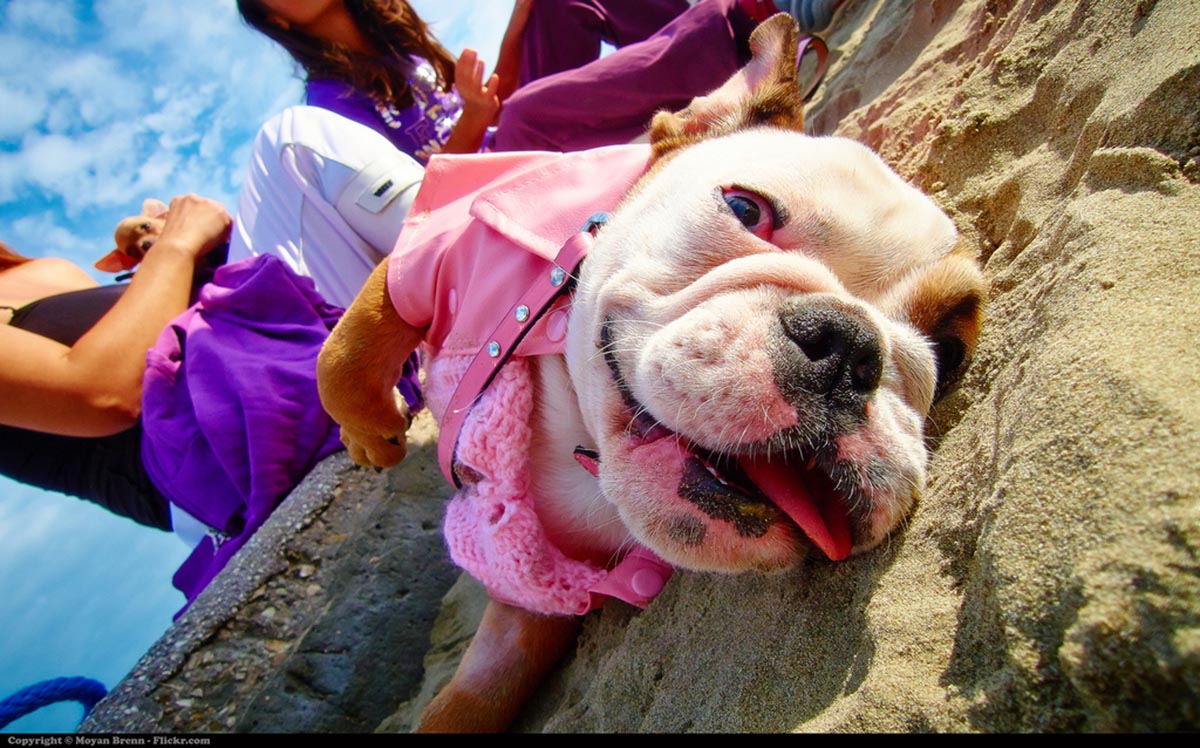Table of Contents
Dogs
Alcohol
Everyone's heard of someone who says their dog loves beer. Actually, they probably don't. Or, at least, if they do it proves the point about animals not always being the best judges. Alcohol does to dogs the same as it does for cats. Not only does it make Rover walk uncoordinatedly, it causes difficulty breathing, and may lead to coma and death.
Apple Seeds
Apple seeds contain amygdlin, a naturally-occurring chemical that releases cyanide when eaten. Unless you sit there, feeding dozens of seeds to your dog, this is unlikely to be an issue; but - if your dog happens to like apples - be on the safe side: remove the core of the apple first.

Avocado
Persin, the fungal toxin present in the avocado, is harmful to dogs, causing diarrhoea, vomiting, and heart problems.
Cat Food
Cats require a higher fat diet. This diet is completely unsuitable for a dog. Just as you should never give a cat dog-food (as they would become malnourished), cat-food is improperly balanced for a dog.
Caffeine
All caffeine products are highly dangerous to dogs. They can cause vomiting, tremors, seizures, and even death (if enough caffeine is consumed). What is "enough" varies from pet to pet. Consult a vet if your dog has any.
Chocolate
Chocolate contains theobromine and theophylline, which can be toxic to dogs, damaging their heart and nervous system, and causing digestive symptoms like vomiting and diarrhoea.
Fat trimmings
Whether cooked or raw, fat trimmings may cause pancreatitis.
Grapes and Raisins
Dogs can die from only a handful of grapes. They are just as sensitive as cats to the toxin within, and may also develop kidney failure and even liver damage before you realise they have it.
Onions and Chives
Onions are almost as poisonous for dogs as they are for cats, damaging red blood cells and leading to anaemia. Chives are from the same family and should be avoided.
Persimmons, Plums, Pears and Peaches
Anything with seeds or pits is a risk of choking and bowel obstruction for a dog. However, peaches pose a double risk. They contain amygdalin, which breaks down into cyanide as they're digested.
Pears also carry a dual threat, as their seeds contain a small amount of arsenic.
READ Ten Common Misconceptions About Canine Health
Raw Fish
Raw fish (especially salmon and trout) are particularly harmful for dogs. Not only do they come with a high risk of infection with the parasite, Nanophyetus salmincola, which often carries a bacteria fatal to dogs, but they also deplete thiamine reserves leading to anorexia, convulsions and even death.
Salt
We all know that too much salt is bad for us, but it's doubly bad for dogs. Too much salt causes electrolyte imbalance, which leads to diarrhoea and dehydration.
Xylitol
The sugar-substitute xylitol (found in chewing gum and sugar-free sweets) can cause a dangerous excess production of insulin, causing a sudden drop in blood glucose levels, leading to seizures and even death. Kidney damage can also result from feeding your dog xylitol.
What should I do if my pet eats something they shouldn't?
No matter how closely you watch your pet, sometimes they get their little paws on something when your back's turned.
If that happens, follow these simple steps.
- Keep calm. Remove the pet from the food. Ascertain how much your pet may have eaten. .
- Call your vet. Tell your vet that your pet has been poisoned, the food they've eaten, the quantity, and any symptoms they are having. If a small amount is eaten, your vet may advise you to stay at home and monitor the situation. If a large amount of something particularly toxic is consumed, however, you may be advised to come in for immediate treatment.
- If your own veterinary office is closed, find the nearest emergency vet. Always keep the number of your own vet and the nearest emergency clinic close to the phone so it's quickly available in an emergency.
Your quick-acting could save your faithful friend. So don't delay.
- www.vets-now.com/pet-owners/cat-care-advice/human-foods-poisonous-cats
- pets.webmd.com/ss/slideshow-foods-your-cat-should-never-eat
- pets.webmd.com/ss/slideshow-foods-your-dog-should-never-eat
- pets.thenest.com/can-happen-dog-drinks-coffee-11731.html
- www.peteducation.com/article.cfm?c=1&aid=1029
- www.petmd.com/cat/emergency/poisoning-toxicity/e_ct_human_food_poisoning
- blog.petmeds.com/1800petmeds/is-tuna-bad-for-cats
- www.caninejournal.com/foods-not-to-feed-dog
- www.rspca.org.uk/adviceandwelfare/pets/cats/health/poisoning
- www.dailymail.co.uk/news/article-3580208/The-doggy-dustbins-Yes-adorable-Labradors-greedy-belief-scientists-know-says-BEN-FOGLE.html
- Photo courtesy of Moyan Brenn: www.flickr.com/photos/aigle_dore/6672148025/
- Photo courtesy of aigle_dore: www.flickr.com/photos/aigle_dore/4043465013/
- Photo courtesy of aigle_dore: www.flickr.com/photos/aigle_dore/4043465013/

